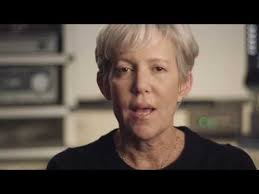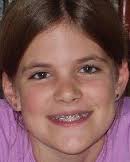Grieving Mother Still Yearns for Apology 11 Years Later

 Recently I was contacted by Lenore Alexander, a mother who lost her 11-year old daughter to an accidental overdose of painkillers following a successful surgery. According to Lenore’s story, her daughter, Leah, was given ever increasing doses of narcotics to deal with unrelenting pain after the operation. Leah died while Lenore fell asleep after being up continuously for 30 hours. Lenore awoke to find her child dead in the hospital bed next to her. The autopsy showed the epidural has been inserted in the wrong place.
Lenore established a foundation in Leah’s memory to advocate for mandatory electronic monitoring of patients on opioids. So, she is trying to bring good out of bad….a lot of bad.
Recently I was contacted by Lenore Alexander, a mother who lost her 11-year old daughter to an accidental overdose of painkillers following a successful surgery. According to Lenore’s story, her daughter, Leah, was given ever increasing doses of narcotics to deal with unrelenting pain after the operation. Leah died while Lenore fell asleep after being up continuously for 30 hours. Lenore awoke to find her child dead in the hospital bed next to her. The autopsy showed the epidural has been inserted in the wrong place.
Lenore established a foundation in Leah’s memory to advocate for mandatory electronic monitoring of patients on opioids. So, she is trying to bring good out of bad….a lot of bad.
Lenore contacted me to share an article about her daughter’s death that didn’t receive much notice, and I offered to share the article with our audience. Powerful article --- link is below. Also below is a link for a YouTube video of Lenore telling her story. As a father of a little girl myself, I found Lenore's video very moving.
In reading Lenore’s article and corresponding with her via e-mail, you see a person who after 4000+ days is still facing enormous grief and guilt over the death of her daughter to a situation that was entirely preventable. She feels partially responsible for what happened. What compounded the grief and continues to damage Lenore and her family is the total lack of accountability by the hospital and the clinicians. Consider this excerpt from Lenore's article:
“What might have helped? First, telling me the whole truth. Admitting what happened. Making an apology. That might give me the ability to breath without the weight on my heart for the rest of my life. Little to ask, it seems, for all they took. And then I want them to help me to work with me and others like me, to use my experiences, my advocacy and my total commitment to together prevent one more family from having their lives ripped apart by the needless death of a child.”
When you fail to own a medical error, there is a chance you will literally interrupt the grieving process for patients/families and also caregivers.
Most folks are familiar with the typical grieving process which is taught as happening in stages, when it fact it typically bounces around and is different for every single person. Some good days, some bad days, and back again to the good days. As my dad puts it, the bad days are like a scab being pulled off. However, over time, the good days outnumber the bad and the grieving person can envision a new life. Perhaps they can even redefine themselves. But when there is no accountability, no apology, the grieving process can literally be stuck or frozen for some people and the injury or death can continue to be a destructive force. Think about this the next time you are deciding whether or not to disclose.
Also, think about the “closed cases” in your files where stakeholders - including your clinicians - still need true closure. Consider my story in this regard, and see if you can make it yours too: http://sorryworksblog.net/?p=152.
Here the link to Lenore’s article: http://ppahs.org/2014/01/24/continuous-electronic-monitoring-could-have-saved-my-child-my-family-my-marriage-and-my-life-a-11-year-reflection-on-a-medical-travesty/
Here is the link to Lenore’s powerful YouTube video: http://www.youtube.com/watch?v=Kp_Jf65hp3M.
And here is the link to a story we ran last year of another mother – Dale Ann Micalizzi – still searching for apology following the death of a child many years ago: http://sorryworksblog.net/?p=472.
Forget the rhetorical question, “Can’t we do better?” The real question is what are YOU doing right NOW to make disclosure a reality in your hospital, practice, or group of insureds? Sorry Works! can help you…contact us today.

